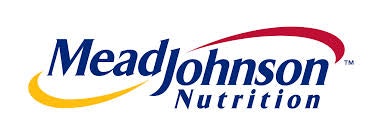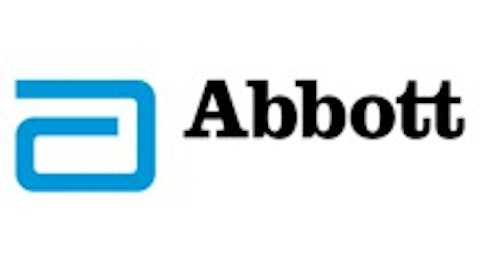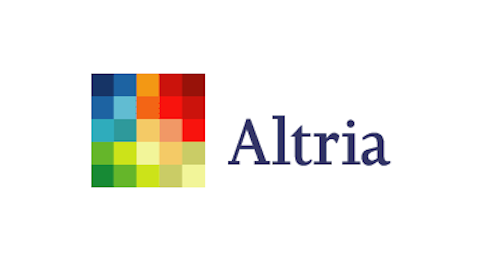Shares of Mead Johnson Nutrition CO (NYSE:MJN) plunged recently, after Chinese regulators stated that they were investigating claims that foreign companies were intentionally overcharging for infant formula to capitalize on fears of domestic contamination of dairy products. Foreign milk-powder companies have raised their prices 30% since 2008, according to China’s state-controlled People’s Daily newspaper.
Will this investigation derail the growth of Mead Johnson Nutrition CO (NYSE:MJN) and its industry peers in China, which has been considered a fertile growth market for infant formula, or has the company’s 8% slide on July 3 presented a buying opportunity for long-term investors?
The melamine scandal
In 2008, at least six infants died from consuming melamine–tainted milk powder from domestic formula producers in China. Melamine, along with cyanuric acid, ammeline and ammelide, can be used to inflate the apparent protein content of products, allowing cheaper, dangerous products to be sold as more expensive ones. Although melamine is not believed to be extremely toxic by itself, it can cause kidney failure and death when combined with cyanuric acid. This protein export contamination first reared its ugly head in the 2007 pet food scandal, before spreading to the domestic infant formula market.
This public distrust of domestic milk-formula brands, exacerbated by the government’s slow response to the crisis, led to a surge in demand for foreign brands from Mead Johnson Nutrition CO (NYSE:MJN), Abbott Laboratories (NYSE:ABT), Danone and Nestle SA. As a result, foreign formula brands now account for nearly half of China’s milk-formula market, which has led to charges of price collusion between the largest companies.
Leading domestic milk-formula producers Biostime, Beingmate and Yili are also being investigated by government regulators, indicating that both foreign and domestic brands could be forced to lower their prices significantly.
Mead Johnson’s milk business could spoil
Mead Johnson Nutrition CO (NYSE:MJN) has the most to lose compared to its industry peers. Mead Johnson controlled 14% of China’s 77.9 billion yuan ($12.6 billion) milk-formula market in 2012, according to research firm Euromonitor International, followed by domestic producer Hangzhou Beingmate Group at 10% and Danone at 9.2%. Mead Johnson’s business in China accounts for approximately 30% of its annual revenue. By comparison, Abbott Laboratories (NYSE:ABT) only generates 5% of its top line from infant formula sales in China.
Nestle, which acquired infant-formula producer Vevey from Pfizer Inc. (NYSE:PFE) in 2012, has a far more diversified business than Mead Johnson Nutrition CO (NYSE:MJN) and Danone, with only a marginal market share of the Chinese infant formula market. Therefore, Nestle has readily complied with the Chinese government, initially slashing its prices by 6% to 20% last April, and promising an average price reduction of 11% later this year.
Danone, which has a lot more to lose than Nestle, stated its Dumex formula segment was preparing to reduce prices. Last quarter, Danone’s baby food sales surged 17% year-on-year due to infant-formula hoarding. In addition, demand for Danone’s bottled water brands, including Evian, remained robust as well, due to concerns about the quality of the water supply in urban areas.
Mead Johnson Nutrition CO (NYSE:MJN), which stands to lose the most in revenue, hasn’t released an official statement about upcoming price reductions yet, but it stated that it was “cooperating fully” with Chinese regulators regarding the issue.
Consolidating the milk-formula industry
However, China has another publicly stated motive for targeting of foreign formula makers. Last month, the Ministry of Industry and Information stated that it was in the process of consolidating its milk-formula industry with the intention of creating ten safe and strong domestic brands to restore the faith of concerned consumers.
The Chinese government’s efforts to promote domestic dairy products have caused shares of Mengniu Dairy, the country’s largest dairy producer, to surge. Mengniu has rallied more than 30% over the past three months as a result – a stark contrast to the rest of the lagging Chinese markets in Shanghai and Hong Kong. COFCO, China’s state-owned agricultural and food industry supplier, owns a 19% stake in Mengniu, which will be the direct beneficiary of a widespread market consolidation.
Is Mead Johnson in trouble?
Last quarter, Mead Johnson’s business was humming along nicely on stable, predictable global sales of its infant formula. GAAP-adjusted earnings rose 6.25% from the prior year quarter as revenue rose an adjusted 6%.
By comparison, Abbott Laboratories (NYSE:ABT) reported a year-on-year earnings decline of 56.2% as revenue only rose 1.8%. Therefore, it appeared that Mead Johnson’s basic, non-diversified product portfolio was a major advantage over Abbott’s diversified business of pharmaceutical products, animal health products, nutritional products and medical devices. Yet Nestle, with its strong core portfolio of food products, reported 14.8% and 12.8% growth in revenue and earnings, respectively.
However, a breakdown of Mead Johnson’s revenue by segments during the first quarter reveals some glaring risks. The company’s Asia/Latin America segment reported a 7% increase in sales to $755.3 million, but sales increased 6% from price and 1% on sales volume. In addition, its sales volume growth was largely due to its March 2012 acquisition of an Argentine company, Nutriciónpara el Conosur S.A. Lastly, EBIT for the segment actuallydeclined4.4% to $268.4 million.
In other words, Mead Johnson’s top line strength in Asia and Latin America is wholly based on pricing power, and even then it is struggling to grow its bottom line. If Mead Johnson lowers its prices in China in accordance with Nestle’s 11% reduction, then investors can expect some bad Asia/Latin America numbers for the rest of the year.
To make matters worse, Mead Johnson Nutrition CO (NYSE:MJN)’s market share in China declined slightly last quarter. A government-sponsored market consolidation could further reduce its market share.
The Foolish Bottom Line
In conclusion, Mead Johnson exposed itself very heavily to China and reaped the benefits over the past five years. The stock has risen over 150% during that period, but now it appears that the party might be over.
Mead Johnson Nutrition CO (NYSE:MJN) is now in the unenviable position of having to reduce its prices in its largest market, and compromise with a government that is invested in consolidating its domestic brands to regain the faith of its citizens. Although shares of Mead Johnson look fairly cheap, trading at 18.7 times forward earnings, its 5-year PEG ratio of 2.2 suggests slow growth ahead, and additional challenges in China means a bumpy road ahead for investors.
The article Is This Company’s Cash Cow Drying Up? originally appeared on Fool.com and is written by Leo Sun.
Leo Sun has no position in any stocks mentioned. The Motley Fool has no position in any of the stocks mentioned. Leo is a member of The Motley Fool Blog Network — entries represent the personal opinion of the blogger and are not formally edited.
Copyright © 1995 – 2013 The Motley Fool, LLC. All rights reserved. The Motley Fool has a disclosure policy.






